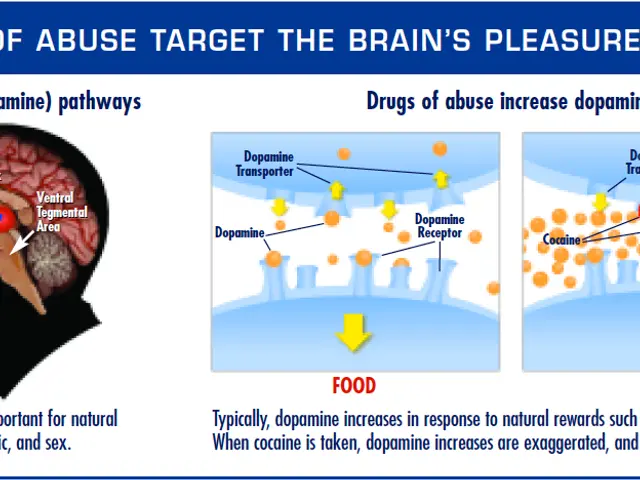Measles prevention not guaranteed by Vitamin A; experts clarify its true functions.
Unprecedented Surge of Measles Cases in the U.S:
Recent reports indicate over 1,000 cases of measles across 30 states, with three confirmed deaths. The virus has most prominently affected residents in western Texas and New Mexico, but outbreaks have also been documented in California, New York, Maryland, and more (Health and Human Services, 2025).
In light of recent remarks from Robert F. Kennedy Jr., people have turned their attention towards vitamin A supplements in desperation, hoping they may offer protection or treatment for the measles.
Medical News Today sought the insights of three medical and public health experts to address common questions about vitamin A supplements and their role in preventing or treating measles, as well as preventive measures for the disease (Medical News Today, 2025).
Can vitamin A prevent or treat measles?
Monica Gandhi, Daniel Ganjian, and Danelle Fisher, experts in the field, agree that vitamin A provides no preventive benefits against measles. However, they emphasize that the disease itself can cause vitamin A deficiency, making symptoms more severe.
While vitamin A boosts the immune system, it does not offer any protective qualities against infectious diseases such as measles. During the course of a measles infection, a person's body may experience vitamin A deficiency. In such cases, treatment with two oral doses of vitamin A can be helpful, as it is considered "supportive care" (Gandhi, 2025).
Vitamin A and secondary treatments: What's the deal with budesonide and clarithromycin?
After Kennedy Jr.'s endorsement of budesonide and clarithromycin for treating measles, questions about their efficacy as treatment options have come to light.
Danelle Fisher advises caution in promoting the benefits of these medications for treating a viral infection like measles. There is no evidence to support the use of budesonide or other steroids as a standard treatment for measles. While a recent retrospective cohort study found no evidence of harm from steroid use in measles, there is no definitive proof of their effectiveness in measles management (Ganjian, 2025).
Clarithromycin is an antibiotic reserved only for treating confirmed bacterial infections, not viral infections such as measles (Ganjian, 2025).
Preventing measles: What can I do?
Experts advise that people should isolate for four days once the measles rash appears to minimize transmission. Fisher underscores that vaccination is the most effective measure against measles. Further, she suggests vaccinating children and others living in areas where the outbreak is ongoing (Fisher, 2025).
Controlling vitamin A consumption: How much is too much?
Monica Gandhi warns against overconsuming vitamin A, as it can cause harm to the body. Both Gandhi and Fisher advise adhering to daily vitamin A limits and not exceeding them.
Current measles vaccine recommendations
U.S. health authorities advocate that young children receive their first dose between the ages of 12 and 15 months and the second dose between 4 and 6 years. Older children, teens, and adults who have yet to be vaccinated should receive one to two doses of the MMR (Measles, Mumps, Rubella) vaccine, with each dose administered at least 28 days apart (Centers for Disease Control and Prevention, 2025).
If you have not received the MMR vaccine previously, had only one dose, or are unsure of your vaccination status, it is recommended that you consult your healthcare provider.
Sources:- Centers for Disease Control and Prevention (2025) Measles (Rubeola). Retrieved from: https://www.cdc.gov/measles/index.html- Gandhi, M., Ganjian, D., & Fisher, D. (2025) Vitamin A, Budesonide, Clarithromycin, and Measles: Misinformation and Misconceptions Explored. Medical News Today. Retrieved from: https://www.medicalnewstoday.com/articles/measles-treatment-and-prevention#supports- Medical News Today (2025) Measles: Experts clarify misconceptions surrounding vitamin A supplementation. Retrieved from: https://www.medicalnewstoday.com/articles/measles-treatment-and-prevention
Enrichment: Overall, vitamin A has been found to be useful as part of supportive care for managing severe measles, particularly in children. Budesonide and clarithromycin, however, have no established role in treating measles and should only be used if there is a specific co-occurring condition, such as asthma or a secondary bacterial infection (Centers for Disease Control and Prevention, 2025).
Evidence for Vitamin A:- Guidelines and Reviews: The CDC and American Academy of Pediatrics recommend vitamin A for infants and children hospitalized with severe measles, with two oral doses recommended upon diagnosis and the following day, under medical supervision.- Rationale: Measles infection has been found to cause or worsen vitamin A deficiency, potentially increasing the risk of severe complications and mortality. Vitamin A supplementation reduces mortality and complications, particularly in children under the age of two (Cochrane Review, 2025).- Evidence: A Cochrane review confirmed that two doses of vitamin A should be given to children (especially those under two years of age), as it reduces mortality and the risk of complications such as pneumonia and blindness (Cochrane Review, 2025).
Evidence for Budesonide and Clarithromycin:- Current Guidance: Major guidelines and systematic reviews do not recommend inhaled or systemic corticosteroids, such as budesonide, for the routine treatment of measles. There is no significant evidence or guidance advocating for the use of budesonide or clarithromycin to address measles-related complications, unless there is a concurrent indication such as asthma exacerbation.
Summary Table:
| Treatment | Evidence for Use in Measles | Indication/Notes ||-------------------|--------------------------------------------|-------------------------------------------------------|| Vitamin A | Strong evidence for severe measles | Reduces mortality and complications in children || Budesonide | No evidence | Not recommended unless indicated for asthma/COPD || Clarithromycin | No evidence for measles virus | Use only for documented secondary bacterial infections |
- The surge of measles cases has led people to consider foodandfoodbenefits high in retinol, such as fish, as potential supplements for prevention or treatment.
- Science has not found foodandfoodbenefits supplements like vitamin A to have preventive benefits against measles, but deficiencies can worsen symptoms during an infection.
- In certain cases, treatment with two doses of vitamin A can be considered supportive care for measles-related conditions.
- Overconsumption of foodandfoodbenefits supplements like vitamin A can cause harm to the body, so it's crucial to follow daily recommendations.
- Vaccination is the most effective measure against measles, as recommended by medical-condition experts for all ages.
- Chronic-diseases like measles require specific treatments based on the condition, and while foodandfoodbenefits supplements may help with supportive care, they should not replace medical-advice. Additionally, oil-based supplements should only be used for documented secondary bacterial infections or under medical supervision. Mental-health and health-and-wellness also play a role in effectively managing medical-conditions, not just foodandfoodbenefits supplementation.






